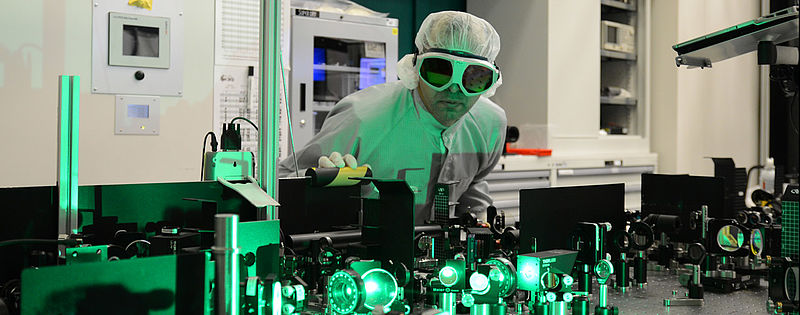interview – Ayman Alismail, a PhD student from the King Saud University in Saudi Arabia, is working on his doctoral thesis at the Laboratory of Attosecond Physics of the Ludwig-Maximilians-Universität München. Here he reports on what it is like to live and work in Germany.
What inspired you to study physics?
Physics is an essential science for understanding the natural phenomena around us in the world. Studying Physics helps me to answer many questions and seek better explanations for many effects. It is a fascinating subject, and it challenges my imagination when I try to solve problems by using scientific methods. Besides, it enhances and sharpens my analytical skills.
What fascinates you about photonics?
Photonics can be considered as the science of light, and I am fascinated by all the technologies that generate and make use of light – especially those that modify light, such as laser-based techniques.
What are the differences that have struck you most between academic life in Saudi Arabia and Germany?
Germany has become an attractive destination for international postgraduate students. With its wide range of universities and higher-education institutions, it offers unique research opportunities. In Germany, academic institutions work closely with industry to promote the research field, and this often develops into active cooperation between the two. In addition, the good research environment enables researchers to achieve their ambitious scientific goals.
What does your working day at the Ludwig-Maximilians-Universität look like?
My working day is mainly a combination of lab work, discussions, reading, and writing. It starts in the morning with checking my e-mail, ordering components for the lab, and reading through some scientific papers. Then, I go to the lab to run the laser and set up the day’s experiment. In the afternoon, I go for lunch with my colleagues, then we have a coffee break together. During the break, we have a scientific discussion and we talk about each other’s experimental work. The time in the evening is divided between running the next experiment in the lab and evaluating the experimental results in the office. Occasionally, I spend some time doing simulations and write an article about my latest results or an abstract for a scientific conference.
What do you like most about Germany?
There are several things I can point out – especially, the climate in the summer, when you can enjoy nature by going south to the Alps. There you can go hiking and enjoy fantastic panoramas of the Alps, and you can also explore the many spectacular lakes. Cities in Germany have good public transport networks which help you to avoid using a car and being stuck in traffic. Besides, German cuisine offers a wide variety of breads; so, don’t miss the chance to try some of them.
What will the academic future bring?
I believe that scientific collaborations, such as the collaboration between King Saud University and Munich University which was established in 2008, will shape the future of academia. A collaboration like this one provides a platform for the exchange of scientific knowledge and supports Saudi researchers by providing attractive opportunities for research.
